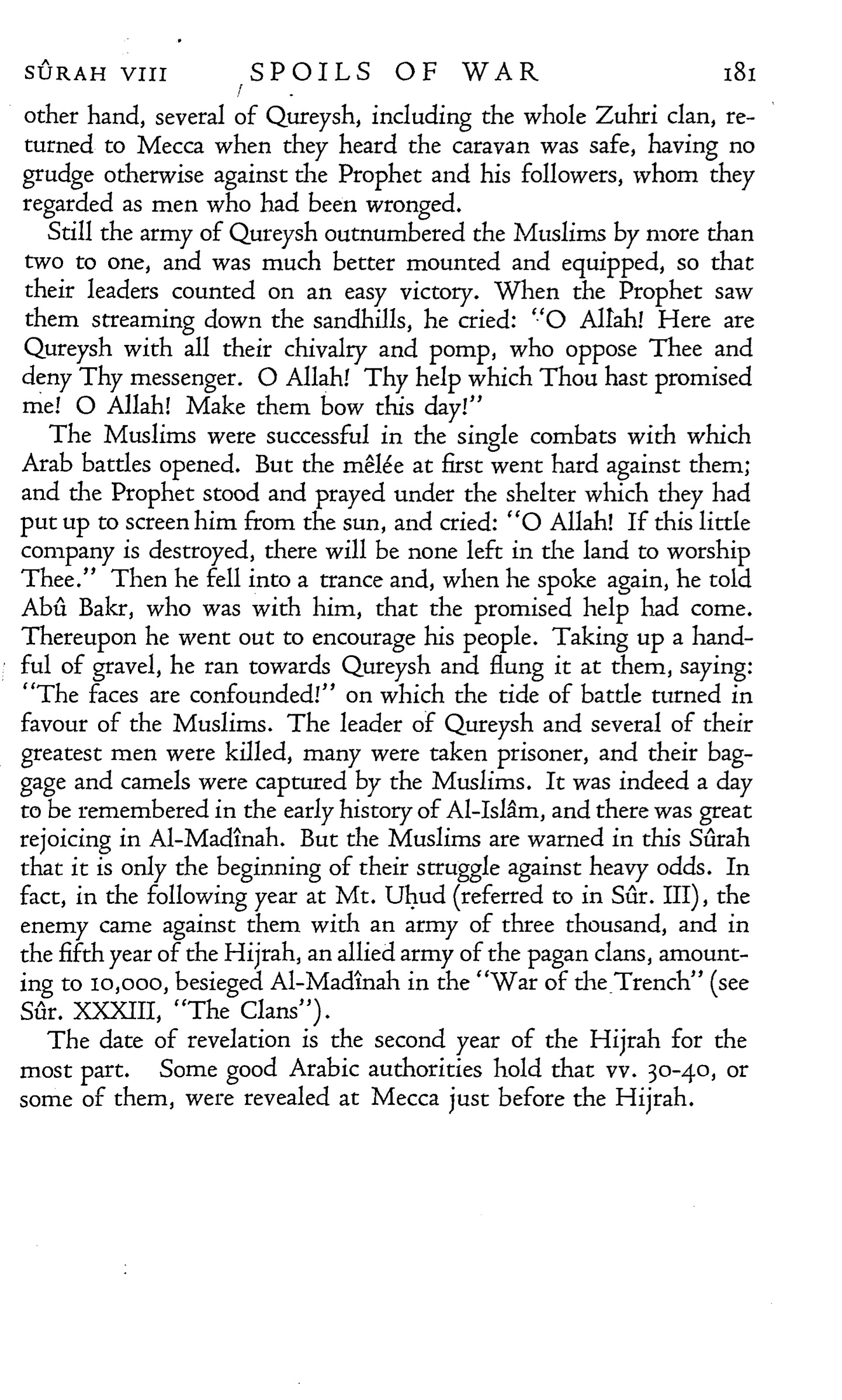Marmaduke Pickthall, The Meaning of The Glorious Koran. An Explanatory Translation (1930)
other hand, several of Qureysh, including the whole Zuhri clan, returned to Mecca when they heard the caravan was safe, having no grudge otherwise against the Prophet and his followers, whom they regarded as men who had been wronged.
Still the army of Qureysh outnumbered the Muslims by more than two to one, and was much better mounted and equipped, so that their leaders counted on an easy victory. When the Prophet saw them streaming down the sandhills, he cried: “O Allah! Here are Qureysh with all their chivalry and pomp, who oppose Thee and deny Thy messenger. O Allah! Thy help which Thou hast promised me! O Allah! Make them bow this day!”
The Muslims were successful in the single combats with which Arab battles opened. But the mêlée at first went hard against them; and the Prophet stood and prayed under the shelter which they had put up to screen him from the sun, and cried: “O Allah! If this little company is destroyed, there will be none left in the land to worship Thee.” Then he fell into a trance and, when he spoke again, he told Abû Bakr, who was with him, that the promised help had come. Thereupon he went out to encourage his people. Taking up a handful of gravel, he ran towards Qureysh and flung it at them, saying: “The faces are confounded!” on which the tide of battle turned in favour of the Muslims. The leader of Qureysh and several of their greatest men were killed, many were taken prisoner, and their baggage and camels were captured by the Muslims. It was indeed a day to be remembered in the early history of Al-Islâm, and there was great rejoicing in Al-Madînah. But the Muslims are warned in this Sûrah that it is only the beginning of their struggle against heavy odds. In fact, in the following year at Mt. Uḥud (referred to in Sûr. III), the enemy came against them with an army of three thousand, and in the firth year of the Hijrah, an allied army of the pagan clans, amounting to 10,000, besieged Al-Madînah in the “War of the Trench” (see Sûr. XXXIII, “The Clans”).
The date of revelation is the second year of the Hijrah for the most part. Some good Arabic authorities hold that vv. 30–40, or some of them, were revealed at Mecca just before the Hijrah.
